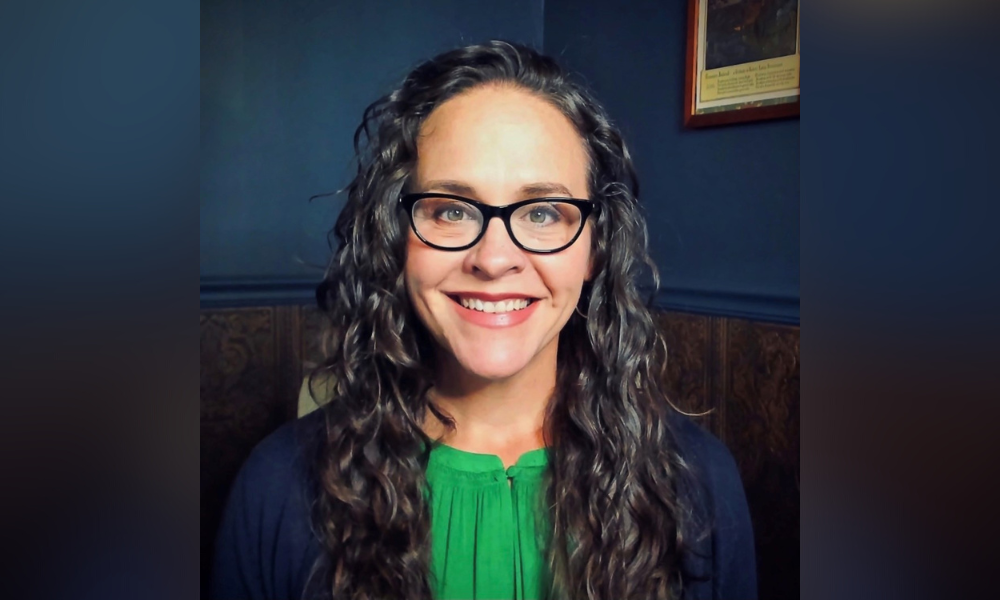Enthusiasm is there but it doesn't match the reality

NerdWallet this week published its annual Home Buyer Report which surveys US adults about their plans and experiences around purchasing a home. With inflation raging as the Fed tries to tame it by raising rates, the mood of respondents was decidedly pessimistic.
First off, NerdWallet’s data analyst, Elizabeth Renter (pictured), told Mortgage Professional America, respondents’ expectations reflect an unrealistic optimism. The survey found that some 28 million Americans, or 11%, said they plan to purchase a home in the next 12 months. Yet even as recently as 2021 – when the market was on fire with historically low interest rates – roughly six million existing homes were sold, she said.
“I’ve been writing this report for five years now, and a lot of the questions we ask are the same year after year so we can identify trends,” Renter told MPA in a recent interview. “One of the things that honestly always surprises me is the consistency. People are always optimistic about buying in the coming year when we ask them in December if they plan to buy. End of 2020, end of 2021 and now, anywhere from 9% to 11% say they’re going to buy a home in the next 12 months, and this time it was 11% -- which is a completely unrealistic number of people. That would be 28 million home sales; five million to six million homes are sold each year.”
Envisioned home prices are also unrealistic
In another example of unrealistic expectations, many would-be homebuyers (around 11%) said they plan to spend an average of $269,200 on a home – a figure far short of the national average. The actual average of an existing home depends on which source one consults. The National Association of Realtors places that national average (as of October 2022) at $379,000 while the Federal Reserve Bank of St. Louis puts it at $467,000.
Given the discrepancy between the budget cap and the actual value average, many of those hoping to buy a home will fall way short, Renter said. “Of course, that’s not to say all of them because a good share of the population lives in more affordable areas,” she noted.
She used her own experience as example: “I live in a very small town in Kansas,” she said. “Homes here are extremely affordable, but no-one wants to live here otherwise the town wouldn’t be as small. In high-demand markets, they’re going to spend a lot more than $200,000 or $300,000. Those buyers are going to need to be more flexible in where they’re looking at or what kind of house they’re looking at in order to make those budgets work. It’s going to be pretty tough.”
Optimism contradicts reality
The optimistic plans also don’t reconcile with what actually happened last year. “One of the things we ask is if they plan to buy a home and if they were successful,” Renter said of the questionnaire. This year’s report shows 70% of respondents were not successful in their home quest last year. “They fall out of those millions upon millions who planned to buy,” Renter noted. “This year it was mortgage rates for many people or they put in an offer that wasn’t accepted or the homes they were looking at were too expensive.”
Many expect a housing market crash
Enthusiasm about buying a home figured prominently despite dire predictions for the housing market among respondents – most expecting an imminent housing market crash. Two-thirds (67%) believe a crash will occur in the next three years, according to the report.
Notwithstanding such misplaced idealism, Renter suggested being encouraged by such aspiration: “I say that because in spite of extremely high prices, mortgage rates that have been the highest they’ve been in several years and a lot of economic uncertainty, we still have a lot of people who say ‘this is going to be the year I’m going to buy a home.’ It makes me happy to know they’re optimistic about it.”
Other key findings include:
- Many Americans feel worse about 2023 home buying prospects. About one-third (32%) of Americans feel worse about their ability to purchase a home in 2023 than in 2022, regardless of whether buying a home is in their plans. This is up from 25% when asked last year.
- 2022 proved a tough market for buyers. Most (70%) Americans who had plans to purchase a home in 2022 (as of January 1, 2022) were unsuccessful. A small share (4%) of those who fell short of their plans say they canceled them because they changed their mind about ever purchasing a home.



